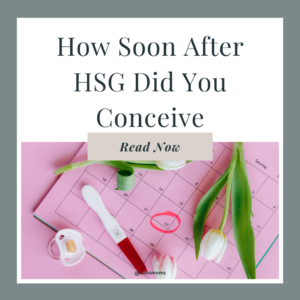I have the pelvic inflammatory disease can I get pregnant by fertisure f? It’s a question that has come to be asked several times when one is faced with it for the first time. But before we answer this question, let me tell you about pelvic inflammatory disease and how you can deal with it according to your situation. First off, what is pelvic inflammatory disease?
What Is Fertisure F Tablet?
FERTISURE is a natural, safe, and effective supplement that helps you get pregnant quickly, easily and safely.
It is the most effective remedy for infertility in women. It helps increase the chances of conceiving a baby naturally. FERTISURE can be used by women who are trying to conceive for the first time or those who have been trying unsuccessfully to conceive for a long period of time.
FERTISURE may also be used by women who have or suspect they have low FSH levels (stimulating follicle hormone) and low LH levels (luteinizing hormone).
FERTISURE is not intended as a substitute for medical advice, diagnosis, or treatment by a trained healthcare professional.
What Is Pelvic Inflammatory Disease?
Pelvic inflammatory disease (PID) is a common cause of chronic pelvic pain, which may be mild or severe. PID can affect women of all ages, but it is more common in young women. PID can occur at any time during your childbearing years. It is more likely to affect sexually active women with a sexually transmitted infection (STI).
In some cases, PID can lead to tubal damage and infertility. Other complications may include ectopic pregnancies and chronic pelvic pain. In rare cases, PID can cause death and collapse of the uterus.
How Pelvic Inflammatory Disease Affect Pregnancy?
You might be told to take antibiotics when you get pelvic inflammatory disease (PID). Antibiotics are supposed to help prevent or treat the infection, but they can also cause problems in pregnancy.
The most common problem is that your baby will be born too early. Your doctor may recommend that you have a cesarean delivery instead of giving birth vaginally because of PID.
Another possible complication is low blood pressure during labour and delivery. This can be life-threatening for both mother and baby, so working with your doctor to avoid this complication is essential.
What Are the Signs of Pelvic Inflammatory Disease?
The most common symptoms of pelvic inflammatory disease are:
- fatigue
- fever or chills
- tiredness, weakness and/or muscle aches
- headache
- loss of appetite or nausea.
If you have any of these symptoms, it’s important to see your doctor as soon as possible. You may need treatment for pelvic inflammatory disease.
What Are the Chances of Getting Pregnant After Pelvic Inflammatory Disease?
This is a question I get all the time. The short answer is that it depends. If you have the pelvic inflammatory disease and become pregnant, there is a chance that the baby will be born healthy unless the mother has other health problems.
The risk of having a healthy baby after pelvic inflammatory disease depends on how long the infection has been present and how severe it was:
The longer you’ve been infected with Group B streptococcus (GBS), the lower your chances of getting pregnant are. If you were infected for less than three months, there’s only a tiny chance that you can get pregnant (about 10%). This number increases dramatically if you’ve been infected for more than 20 months – to about 50% or 65%.
If you have GBS antibodies in blood tests taken before conception and during the first trimester of pregnancy, there’s a much lower risk of getting pregnant after pelvic inflammatory disease.
Chances of Getting Pregnant After Taking Fertisure F During Pelvic Inflammatory Disease
Fertisure f is a fertility booster and helps increase pregnancy chances. Fertisure f can be used while suffering from a chronic pelvic inflammatory disease (PID). This supplement is clinically proven to increase your chances of pregnancy by up to 40%. It contains nutrients such as folic acid, vitamin B12, zinc, and iron essential for optimal conception.
Fertisure F increases the chances of getting pregnant up to 40%.
Prevention of Pelvic Inflammatory Disease(PID)
There are three essential things you can do to prevent PID:
Avoid unprotected sex. Condoms help to prevent sexually transmitted diseases (STDs) and pregnancy, but they don’t protect against the most common cause of PID: a sexually transmitted infection.
Get screened for STDs regularly. You must be tested for STDs every year if you have multiple partners. You can also get screened for gonorrhoea or chlamydia if you’re unsure whether you have an STD but think you might have PID.
Know your risk factors for PID and take steps to avoid them. People with a history of PID would be at higher risk for developing it again — especially if they had an HIV-positive partner or who used IV drugs in the past year. You may be at higher risk if you:
Have sex with men who have sex with other men (MSMs). If so, you may be more likely than others to get infected by a sexually transmitted infection that causes PID in women (e.g., gonorrhoea). Have multiple sexual partners over time — especially if they’re all MSMs (though any number of partners is OK if they’re all heterosexual). Have had an abortion or miscarriage in the past three months
Final Wording
Pelvic inflammatory disease is an infection of the female reproductive system. The signs and symptoms include pain, fever, irregular bleeding, feeling bloated, abdominal tenderness and pain. A doctor can diagnose PID by performing a pelvic exam. Pelvic inflammatory disease can increase the risk of infertility because scar tissue can form in the fallopian tubes and damage them. In addition to following up with a doctor after having PID, women should also talk to their doctors about contraception options and preconception planning.




